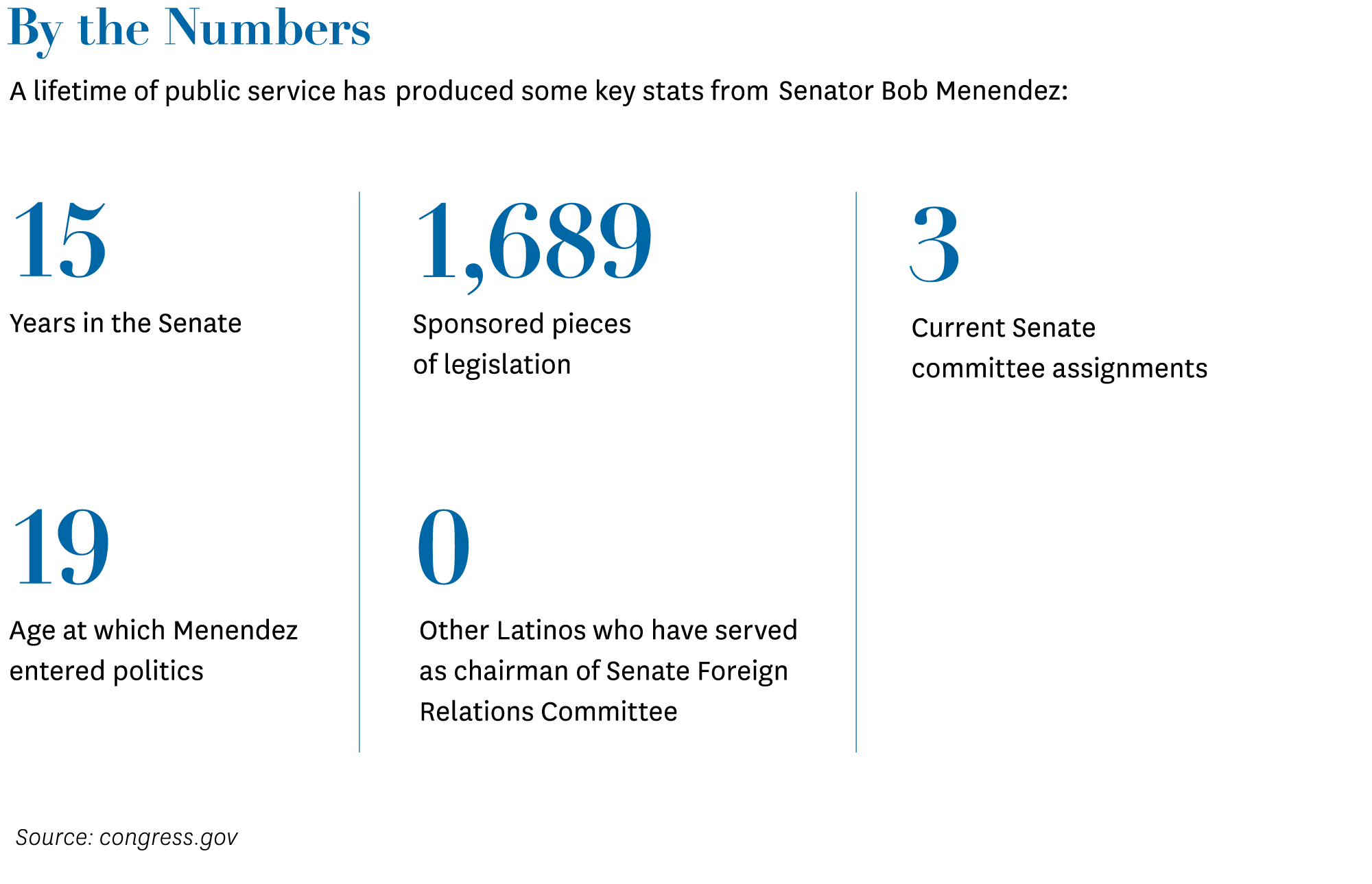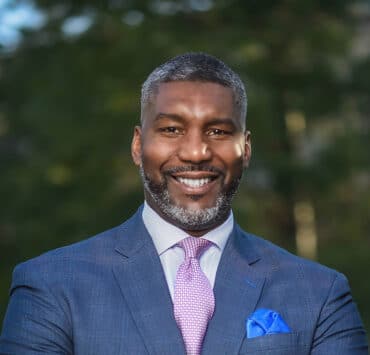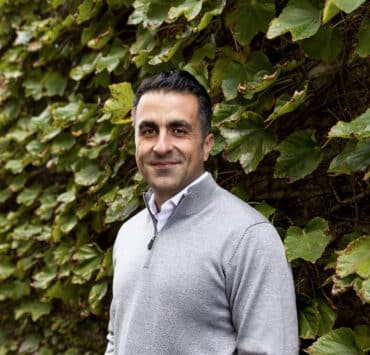Thirty years can either seem like a lifetime or the blink of an eye. Three decades ago, America was engaging in Operation Desert Storm. The Cold War was reaching its official end, the European Union was just becoming a reality, and nobody yet knew about the impact technology would have on our daily lives.
During that same thirty years, the fastest-growing minority in America was rapidly gaining influence and recognition. Federico Peña was sworn in as the US Secretary of Transportation under the Clinton Administration, becoming the first Hispanic to hold the position in US history. The Latin American music explosion dominated the airwaves of pop radio in the late nineties. The North American Free Trade Agreement lifted tariffs between the US, Mexico, and Canada, establishing a trade-free zone in North America for the very first time.
For every one of those last thirty years—and even before then—Senator Bob Menendez (D-NJ) has been an essential voice for both New Jersey families and the broader Latino community. At twenty, Menendez was elected to the Union City Board of Education, making him (at the time) the youngest person to ever win and hold elected office in New Jersey. Later elected as the city’s first-ever Latino mayor, Menendez went on to serve in the New Jersey State Legislature, the US House of Representatives, and, for the last fifteen years, as a US senator representing the state of New Jersey.
Today, Menendez is the highest-ranking Latino in Congress: he is chairman of the Senate Committee on Foreign Relations; a senior member on the Senate Committee on Banking, Housing, and Urban Affairs, where he chairs the Subcommittee on Securities, Insurance, and Investment; and a senior member on the Senate Committee on Finance. But to Menendez, each of these committees helps him serve a common goal—to facilitate and support the efforts of Latinos working to make better lives for themselves and their families in the United States.
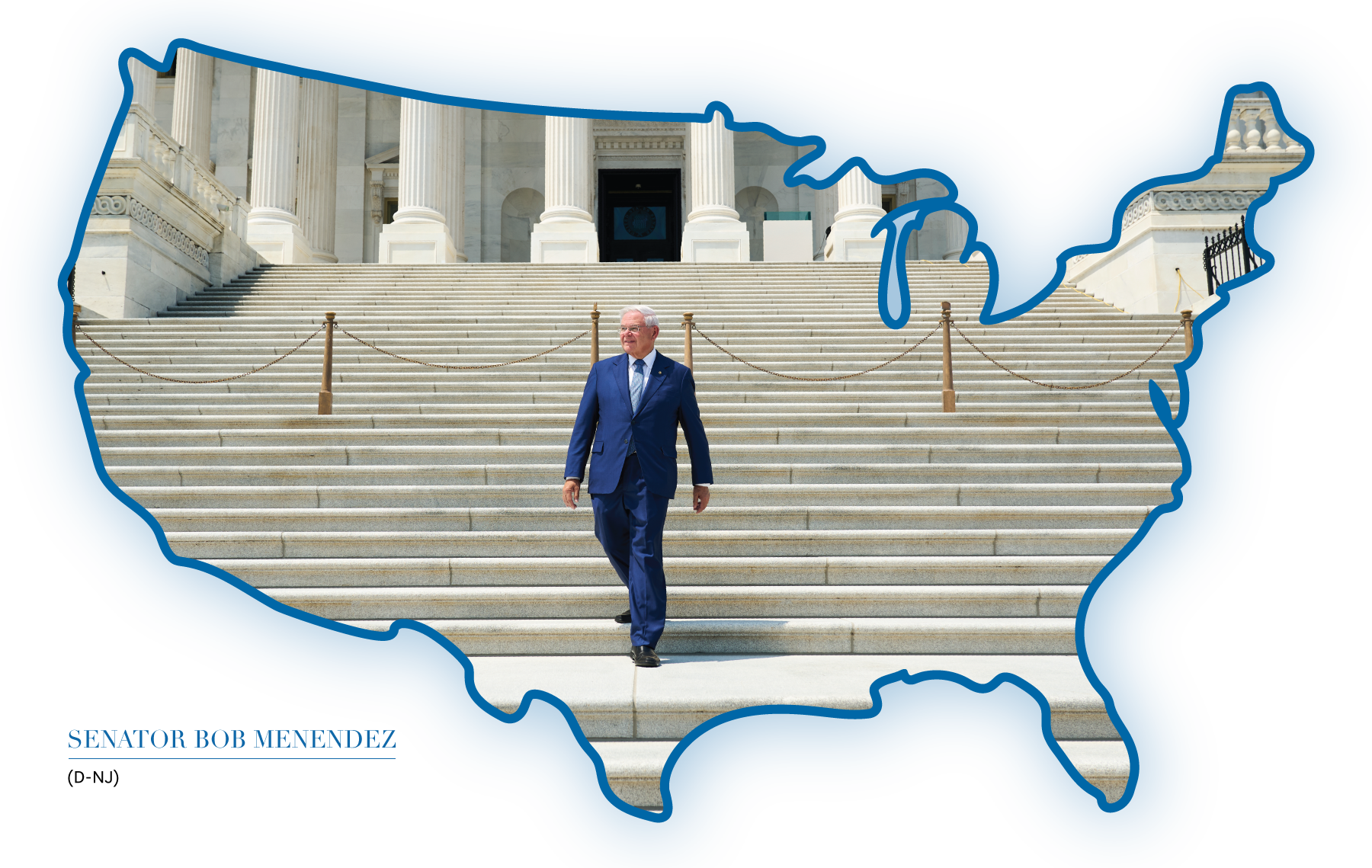
A Lesson from Every Struggle
Much of what has informed Menendez’s prolific political career can be traced back to his early family life. “My mother, the person I admire the most in my life, even if she is no longer with us, made the decision for our family to come to the United States,” the senator explains. “I wasn’t born yet, but she didn’t want to stay to see what was going to happen in Cuba, so she came here with my brother and sister to start all over again.”
Menendez’s mother didn’t speak English, didn’t have a job waiting for her, and didn’t know anyone in the States. The courage she displayed while working to make a better life for her family has impacted many of the decisions Menendez has made as an advocate and politician. “My mother gave me the insight into the whole question of immigration reform, and it’s why I’ve been such a champion of it my whole career,” he affirms.
In fact, many of the senator’s political beliefs are grounded in his parents’ experiences. “I saw my mother work in the factories of New Jersey as a seamstress,” he says. “She was so good that the owner would ask her to basically manage the floor. But she never got paid as a floor manager, while the men did. It taught me a lot about equal pay for equal work.”
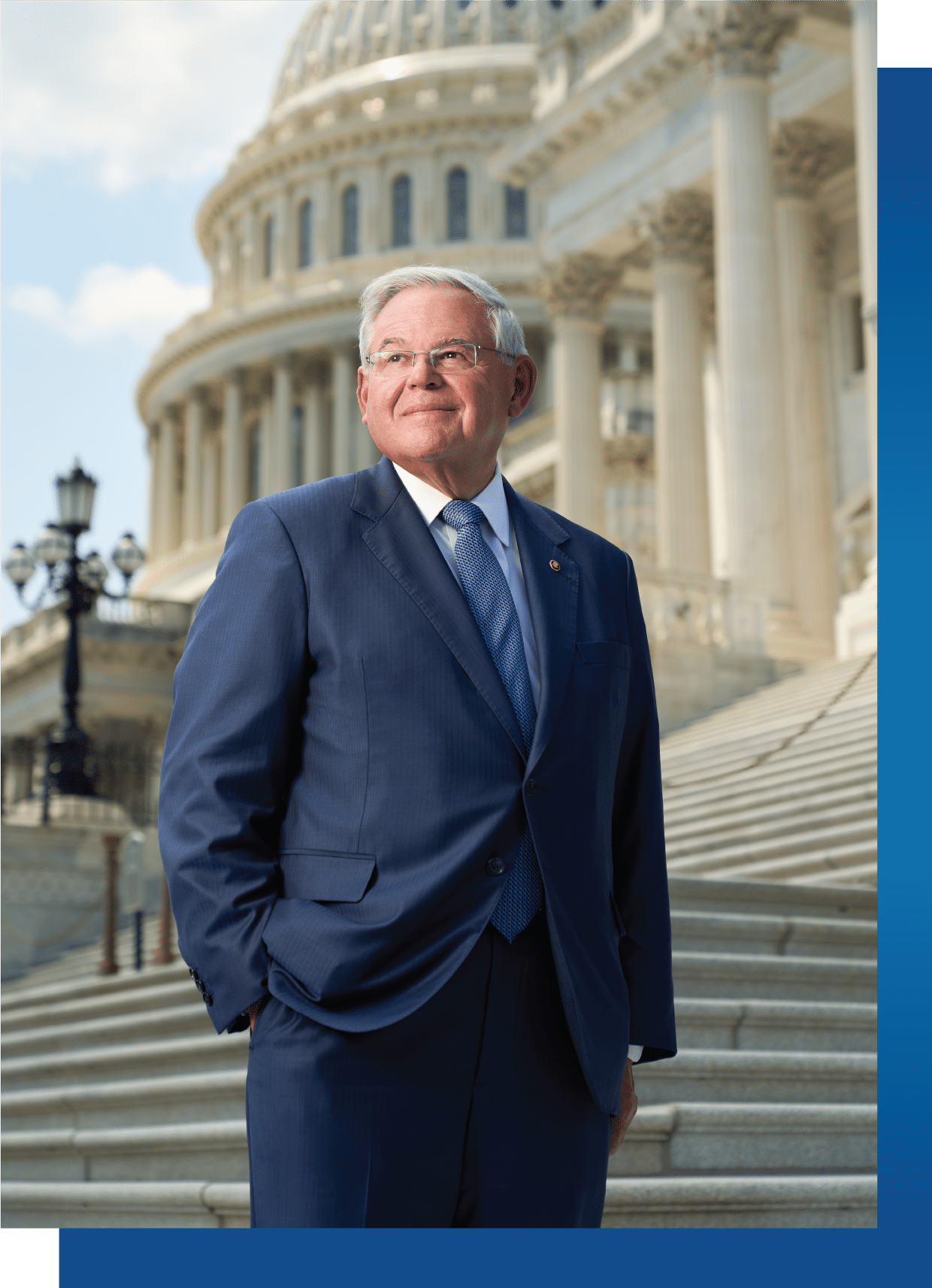
Menendez also witnessed the struggles of his father, an itinerant carpenter who was unable to gain access to capital to try to grow his business. “That was a lesson about the importance of access for small and midsize businesses.”
Every day when Menendez returned home from school, his mother—fresh off a long day in the factory and beginning the work of cooking and cleaning for her family—asked him to read his homework aloud to her. “I would say, ‘Mama, you don’t even speak English. You’re not going to understand what I’m saying.’ But she would still make me do it,” Menendez recalls. “That focus on education would enable me to be the first in my family to go to college.”
Menendez also credits federal student aid programs like Pell Grants and the Perkins Grant, without which he would never have been able to attend Saint Peters University (then known as St. Peter’s College). More than that, he wouldn’t have been able to enroll at Rutgers Law School and develop the strong legal grounding that has driven his ability to draft and advocate for progressive legislation.
Opportunity for All
For thirty years, Senator Menendez has fought to lower barriers for entry into the United States and advocate for a wide range of issues that resonate strongly with Latinos, immigrants, and undocumented workers. As chairman of the Senate’s foreign relations committee, he has helped open up economic and political engagement in Latin America as well as the Caribbean.
The senator has also come out in strong support of President Biden’s increased sanctions on Cuba. “This new wave of targeted sanctions on regime officials represents another essential step to put the dictatorship on notice for persecuting the pro-democracy movement on the island,” Menendez said in a July 2021 statement. “The message today could not be clearer: The United States stands with the people of Cuba and there will be consequences for those with blood on their hands. I look forward to working with the Administration to levy additional sanctions against those who insist on violating the human rights of the Cuban people.”
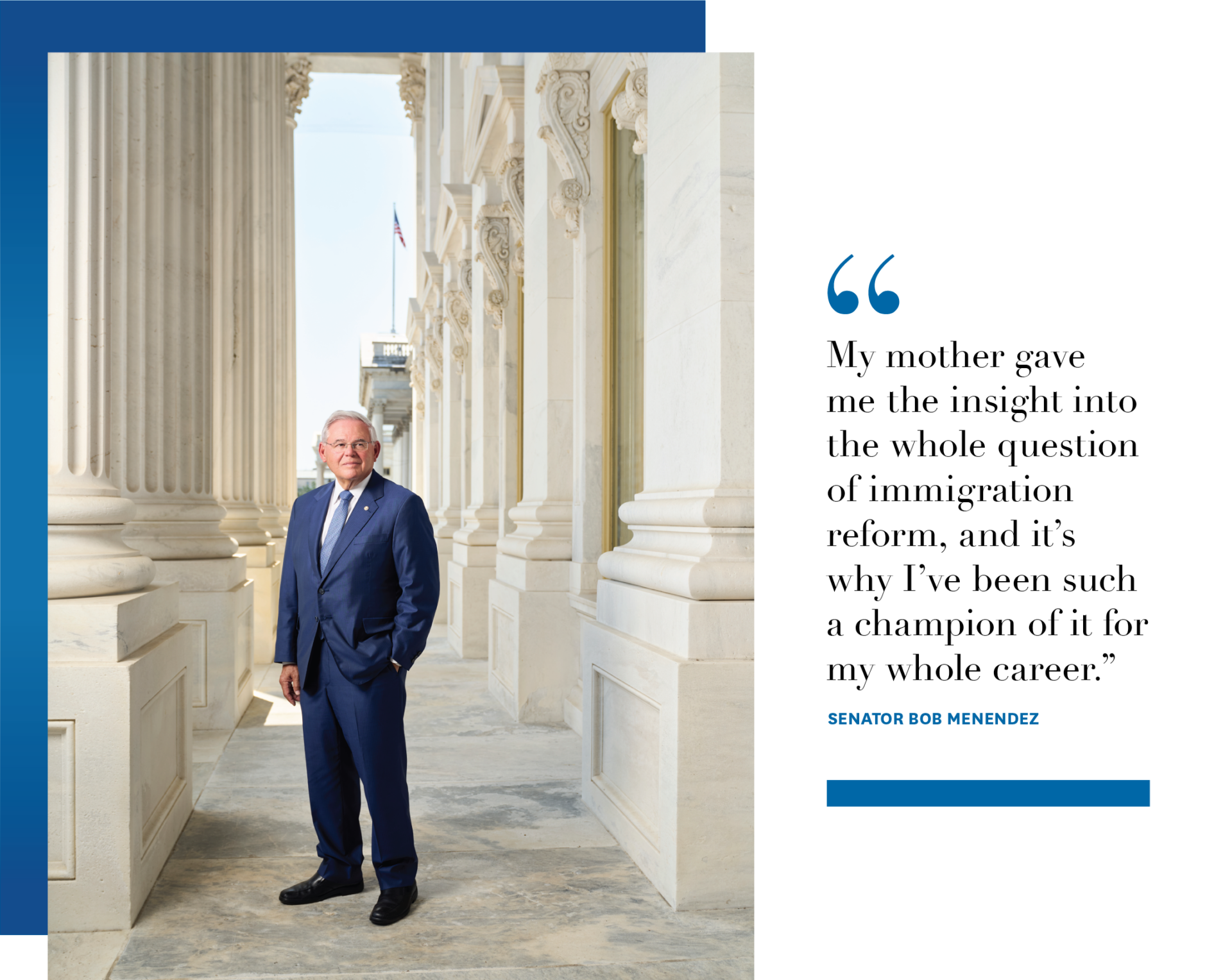
Domestically, the senator continues to look for new and progressive means of creating access to capital for those routinely overlooked by the financial establishment. “My access-to-capital agenda, of which several components have become law, is really about finding a way to end the payday lenders, the check-cashing establishments, and the pawnbrokers as the portal of entry for Latinos to the financial world,” he explains. “How do we create greater access to capital for small and midsize businesses?” Menendez is also fully conscious of other ways Latinos are overlooked by the financial establishment, including the lack of representation for that population within the financial space.
And the senator is out to increase Latino representation, but not just in the financial industry. In February 2021, the senator reintroduced the Improving Corporate Governance Through Diversity Act of 2021, which would require public companies to disclose race, gender, ethnic, and veteran statuses of executive board members and senior management in an effort to help promote diversity in statistically monocultural roles. The move follows an avalanche of studies and surveys indicating that organizations who actively work to create more diverse leadership teams and workforces universally benefit from a broader array of perspectives and ideas.
“Without greater diversity in top corporate positions, the US will fail to compete with other leading economies and stall our nation’s progress towards full inclusivity,” Menendez noted in a February 2021 statement about the legislation. “This bill will ensure transparency in corporate America, while highlighting the need for further accountability for public companies. It’s time corporate boardrooms mirror the rich diversity of our country.”
This focus on the private sector highlights Menendez’s belief that the government can’t simply establish a mandate for equality and walk away. Unless the market is motivated to seek out diversity of experience and background, nothing will fundamentally change.
And Menendez is hopeful that things will change, for the betterment of both individual businesses and the American people. “Improving diversity is not just an act of benevolence. It is the smart thing to do for your bottom line. This is about your ability to compete in a country where nearly 20 percent of the population is already Hispanic,” he explains. “This is about catering to a fast-growing Latino consumer base that commands nearly $1.5 trillion in purchasing power. And when Latinos are on corporate boards and senior executive management, they have opportunities to make judgments and make the argument for investments in our community.”
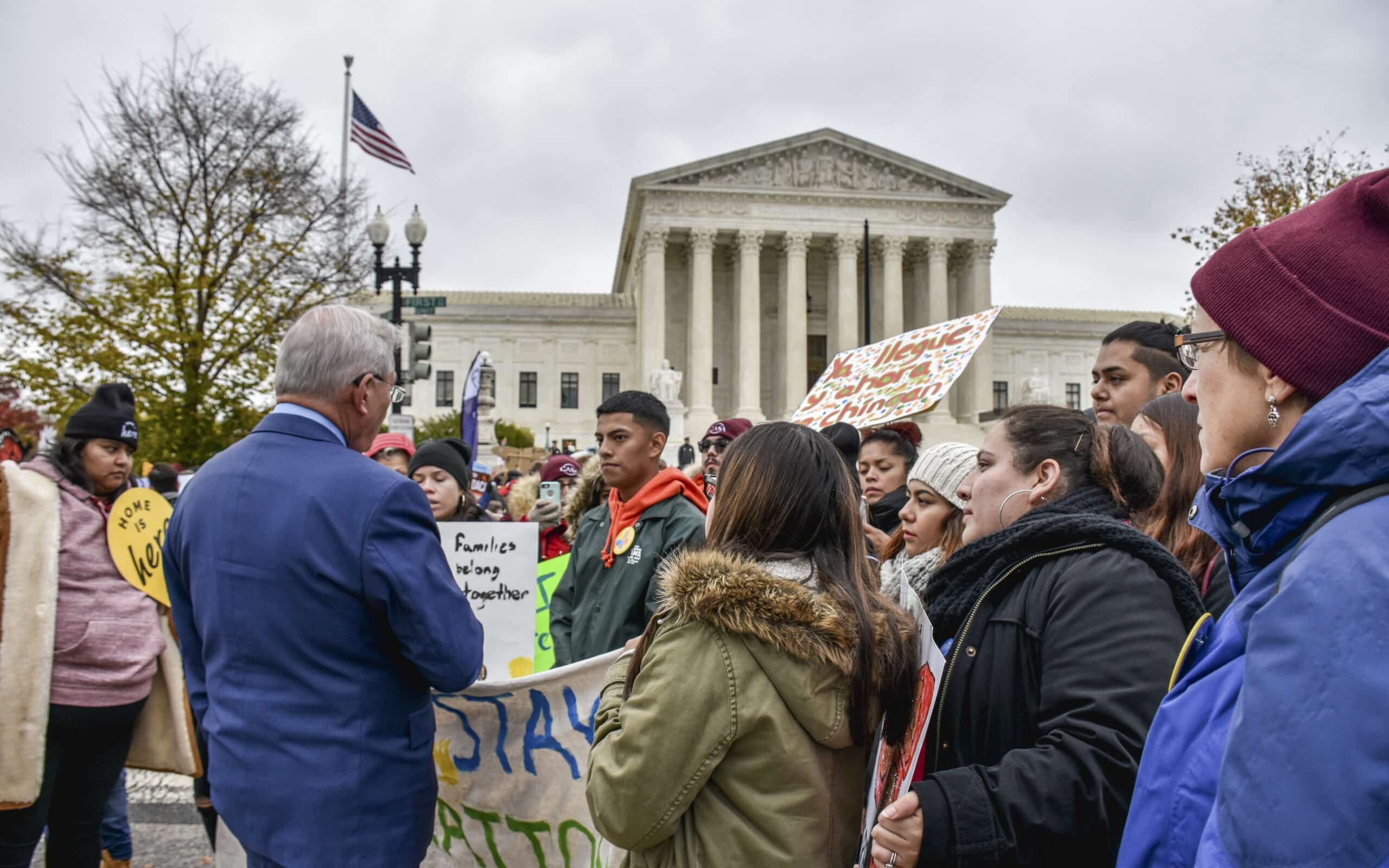
Photo courtesy of the Office of Senator Bob Menendez
Long-Haul Fights
Unfortunately, for many of the issues that are important to Menendez, it is nearly impossible to attain an overnight victory. It took more than twenty years for Congress to pass legislation, led by Menendez, for the construction of the National Museum of the American Latino, which will have a place of pride in the National Mall in Washington DC. “This is a seminal project that celebrates Latino leadership in history throughout the years and is something that has been completely absent from both the National Mall and the education of our children,” Menendez notes.
But even twenty years seems preferable in comparison to the most enduring and politically controversial effort of the senator’s tenure: immigration reform.
Years ago, Senator Menendez and his colleagues did reach a significant milestone in their efforts. “Along with Congressman Luis Gutiérrez, we were able to convince President Obama that he had the power to give Dreamers [children brought to the United States by undocumented parents] a chance to truly dream,” the senator remembers. “DACA was an opportunity to at least give a segment of the undocumented some stability in our country.”
But that was just the beginning. Senator Menendez—along with his fellow members of the bipartisan group known as the Gang of Eight—helped pass the Border Security, Economic Opportunity, and Immigration Modernization Act of 2013 with sixty-eight votes in the Senate, only to see the bill languish and die in the Republican-controlled House of Representatives.
DACA suffered a setback when President Trump attempted to repeal it during his presidency. Most recently, a district court judge from Texas held that DACA is likely unconstitutional and issued a ruling barring new applications. This ruling, Menendez says, has only augmented the urgent need for inclusive and humane immigration reform for Dreamers and the largest number of the undocumented community as possible.
Despite such challenges, the senator encourages every member of the Latino community, regardless of their legal status, to stay in the fight. “Those of us who are US citizens and permanent residents think this isn’t something we should think about, that it’s about someone else,” Menendez says. “This is about all of us. There are eleven million people, largely from our community, who are sitting as an underclass, unable to work legally and unable to fulfill their full promise. When they have a chance to be legalized, who will they go to? They’ll go to Latino lawyers. When they have income, they’ll go to Hispanic businesses. When they need to fill out their tax returns, they’ll go to Latino accountants. The list goes on.”
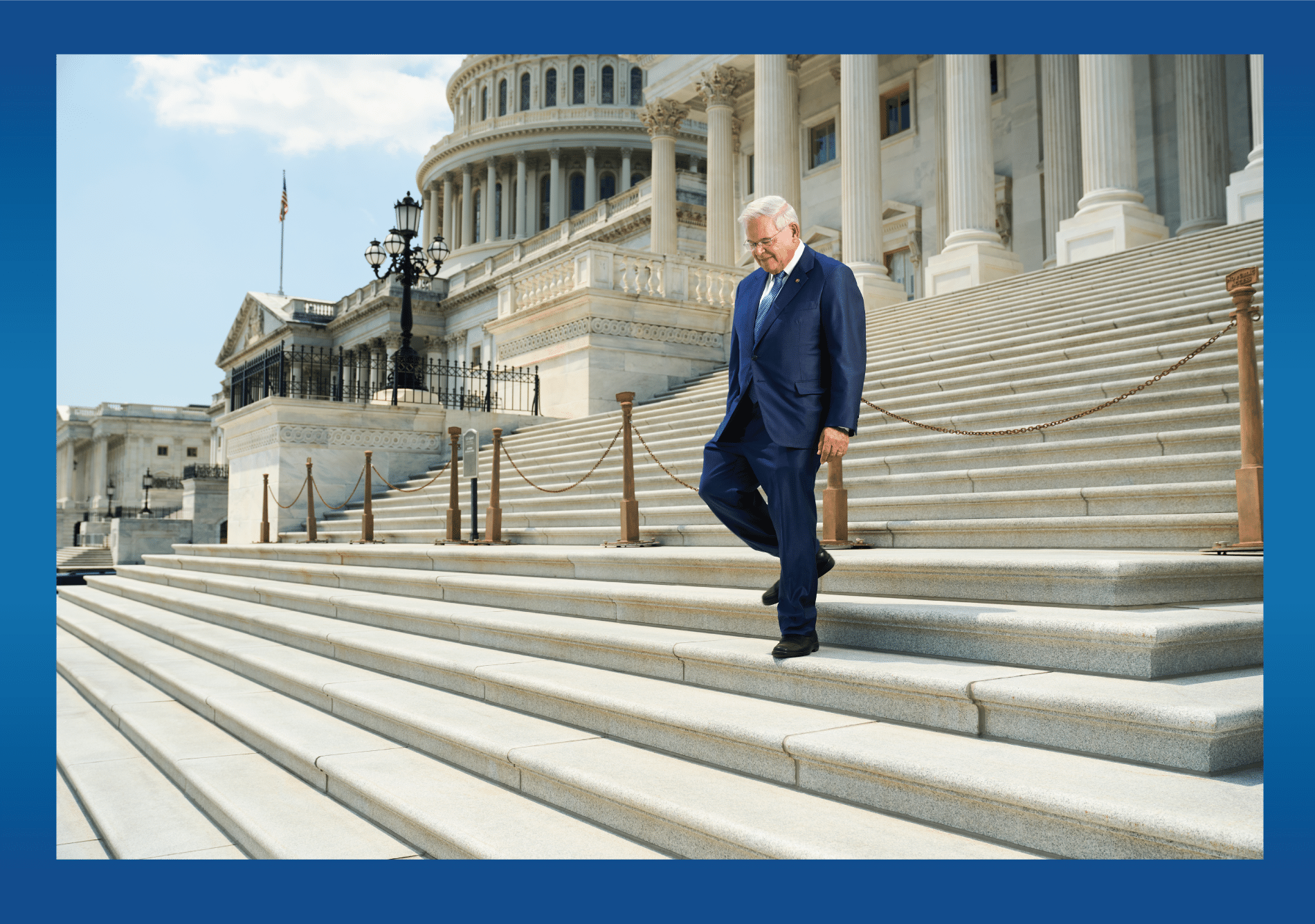
Of course, the rest of America has a stake in this issue as well. As the senator explains, a nonpartisan Congressional Budget Office report released in 2013 found that the Gang of Eight’s 2013 immigration bill would have added billions of dollars to the US GDP, reduced the national deficit, added huge amounts to the Social Security Trust Funds, and eventually raised wages for all Americans. “Every economic factor comes out with positive ratings,” Menendez says frankly.
That’s part of the reason the senator has come forward as the lead sponsor of the US Citizenship Act of 2021. If Congress is unable to pass meaningful immigration reform, he says, he will push to get significant immigration reform measures enacted through the budget reconciliation process to provide a pathway to citizenship to as many members of the undocumented community as possible.
There are always pressing issues facing the Latino community—gaps in educational opportunities, healthcare disparities, economic access for fledgling businesses, and the second-class treatment of Puerto Rico by a country that considers it part of its own.
And Menendez is keenly aware that much still needs to happen. The last thirty years have brought battle after battle, and some of the senator’s most important efforts still remain just that, a battle. But he continues to advocate for the Latino community, and for the American people as a whole, because he wholeheartedly believes that everyone deserves a chance to rise to their full potential. His mother did, his father did, and their son continues to live their beliefs every day.
